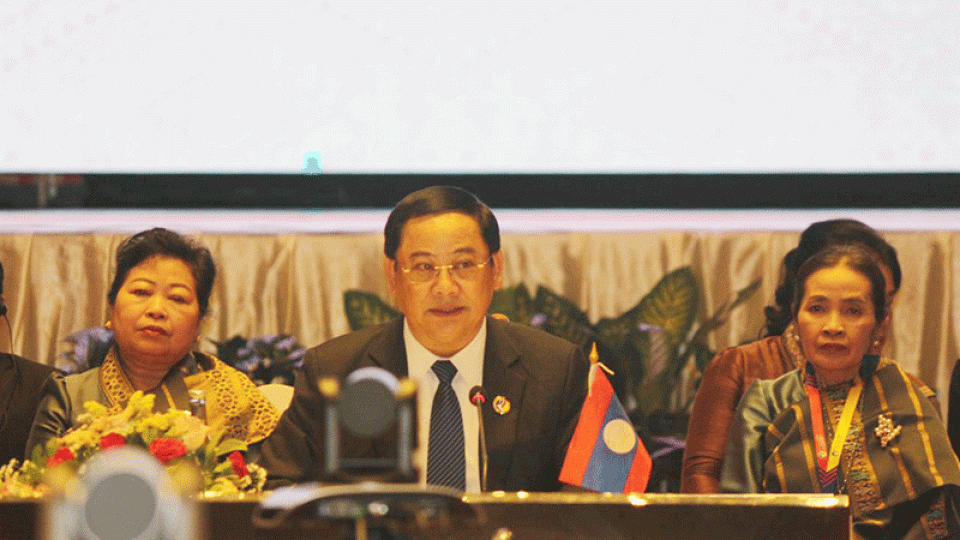August 26, 2024
VIENTIANE – The 3rd ASEAN Women Leaders’ Summit took place in Vientiane last Friday, taking the theme “Strengthening the Care Economy and Resilience Towards ASEAN Community Post-2025”.
The summit was organised by the Lao Women’s Union and chaired by Prime Minister Sonexay Siphandone.
Participants shared in the event both in person and online, and included ASEAN leaders, their respective leaders at ministerial or upper levels, and heads of relevant ASEAN sectoral bodies.
Speaking at the event, the Prime Minister said the summit was crucial for the sharing of information about the care economy, strengthening the role of women in society, and fulfilling the Sustainable Development Goals.
He instructed participants to offer actionable ideas to raise awareness of the value of and investment in various aspects of the care economy, and shine a spotlight on the number of people who work at home but don’t get paid.
He advised participants to support and promote policy drafts, strategies and plans related to the care economy.
“Guaranteed investment in the care economy, social protection policies, welfare and social security, measures to mitigate the risk of epidemics and natural disasters, and guaranteed access to care are all essential,” the Prime Minister said.
The summit aims to acknowledge the pivotal role, potentials and strengths of women leaders and all women in ASEAN in forging a trajectory of recovery and in shaping the future of the ASEAN region in the post-pandemic world.
The meeting reaffirmed ASEAN’s commitment to supporting women and girls in the unpaid care economy as a critical regional agenda, recognising the specific challenges and opportunities in supporting women and girls in the context of resilience building.
The summit also endorsed a final Declaration that identifies specific recommendations for addressing the challenges women and girls face in the context of the paid and unpaid care economy and resilience building.
The summit’s priority theme “Strengthening the Care Economy and Resilience Towards ASEAN Community Post-2025” was chosen in response to the aftermath of the COVID-19 pandemic.
The situation highlighted the underlying gendered structure of national economies, which were shown to heavily rely on both unpaid care work predominantly provided by women, as well as the (often very low) paid workers in the care economy who provided critical health care, child care, aged care, and social support services during and after the pandemic.
The disproportionate burden of care work on women not only exacerbates existing gender inequalities but also increases their vulnerability to gender-based violence.


